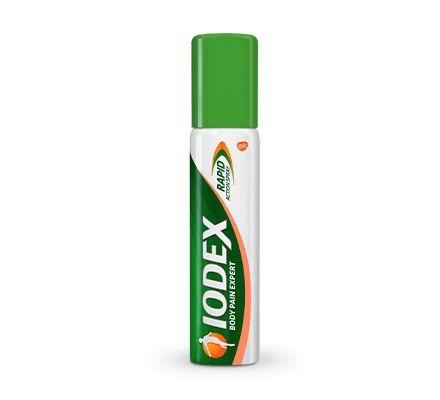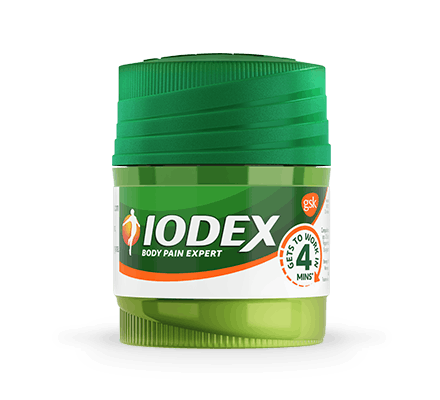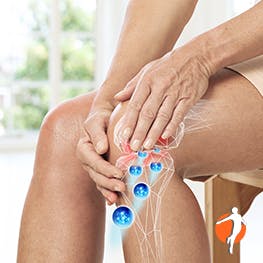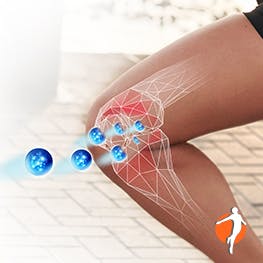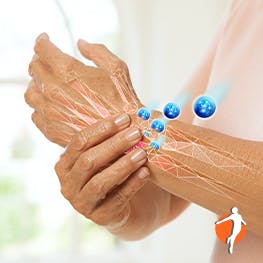
SHARE THIS ARTICLE:
If you have been experiencing ongoing pain for months on end (first of all, we’re sorry to hear it!), you may be experiencing chronic pain. What is chronic pain? Chronic pain is pain that lasts for longer than the expected time of healing for an injury, typically three months or longer.
Being in chronic pain is no fun. Plain and simple. It can be a huge distraction. It can make you pull back from doing things you enjoy and seeing people you love. In fact, chronic pain is strongly linked with lack of sleep, depression, fatigue, loss of productivity.1 A full 78% of people who experience pain report a decrease in quality of life.2
Educating yourself about chronic pain can go a long way in helping you manage it so you can live life pain-free.
Chronic pain can affect anyone of any age or demographic. For better or worse, pain affects all of us at some point in our lives. In fact, chronic pain affected one in five, or about 1.5 billion people of the world population in 2020.3 By understanding what pain is and where it’s coming from, you can stay one step ahead of it.
Symptoms of chronic pain
Chronic pain symptoms vary depending on what the underlying cause is.
Direct symptoms associated with chronic pain include4:
- Stiffness
- Swelling
- Inflammation
- Soreness
- Throbbing
- Dull aches and pains
- Stinging or burning...
Chronic pain can often affect your quality of life. Being in pain can make it difficult to fall asleep and stay asleep. Being sleep deprived can make it harder for your body to regulate its pain response. In other words, insomnia can make your pain feel worse as well as make pain last longer.5
Chronic pain can hold you back from participating in activities that you once loved. It can change how your view yourself and alter your self-esteem. This is why chronic pain can lead to mood disorders like depression and anxiety. That’s part of why we at Iodex firmly believe in helping you regain your joy in day-to-day activities with a range of pain-relief products. (Of course, always be sure to read the label of any medication you begin using.)
Indirect symptoms associated with chronic pain include6:
- Insomnia
- Fatigue
- Weakness
- Mood changes
- Lack of appetite

Causes of chronic pain
What causes chronic pain? Chronic pain is typically caused by an underlying and ongoing chronic illness, such as temporomandibular joint dysfunction (TMJ), multiple sclerosis, endometriosis, or fibromyalgia, to name a few common causes of chronic pain.7
Chronic pain can also be caused by previous injury, possibly from resulting nerve damage. In some cases, however, people may experience chronic pain without previous injury or illness. The reasons for this kind of chronic pain are not well understood.8
Ongoing joint pain or conditions like Osteoarthritis are examples of chronic pain. Acute pain, on the other hand, is categorized as sudden and severe discomfort. So, if you cut your finger with a knife while chopping vegetables, don’t fret. Painful injuries like these usually go away within a relatively short period of time.
Risk factors for chronic pain include:
- Previous injury
- Previous surgery
- Being female9
Researchers are still working to figure out why women are more susceptible to chronic pain.10
Visit your healthcare professional to best understand what causes your chronic pain. Together, you can tailor a treatment plan that works for you and addresses your underlying causes of chronic pain.
Treatment of chronic pain
Treating chronic pain can help you regain your joy of movement, so you can feel a little bit more like yourself again.
Medicated pain treatments include:
- NSAIDs
NSAIDs like diclofenac, the active ingredient can be effective at relieving some types of pain, including the painful flare-ups that people with chronic pain can experience. Many NSAIDs are available over the counter. Always follow the product instructions. - Muscle relaxants
Muscle relaxants may be prescribed by your physician. They can help alleviate painful muscle spasms. - Opioids
Opioids are powerful painkillers. However, they carry with them a high risk of addiction and dependency. Discuss carefully with your physician. - Anti-depressants
In low doses, some anti-depressants have been shown to be effective in relieving pain.11 In order to be effective, they are usually prescribed to be taken every day, and not on an as-needed basis.

SHARE THIS ARTICLE:
Treatment by pain type
Learn all about the causes, symptoms, and pain treatments for the type of pain you’re experiencing so you can get back to doing those little things that bring you joy.


